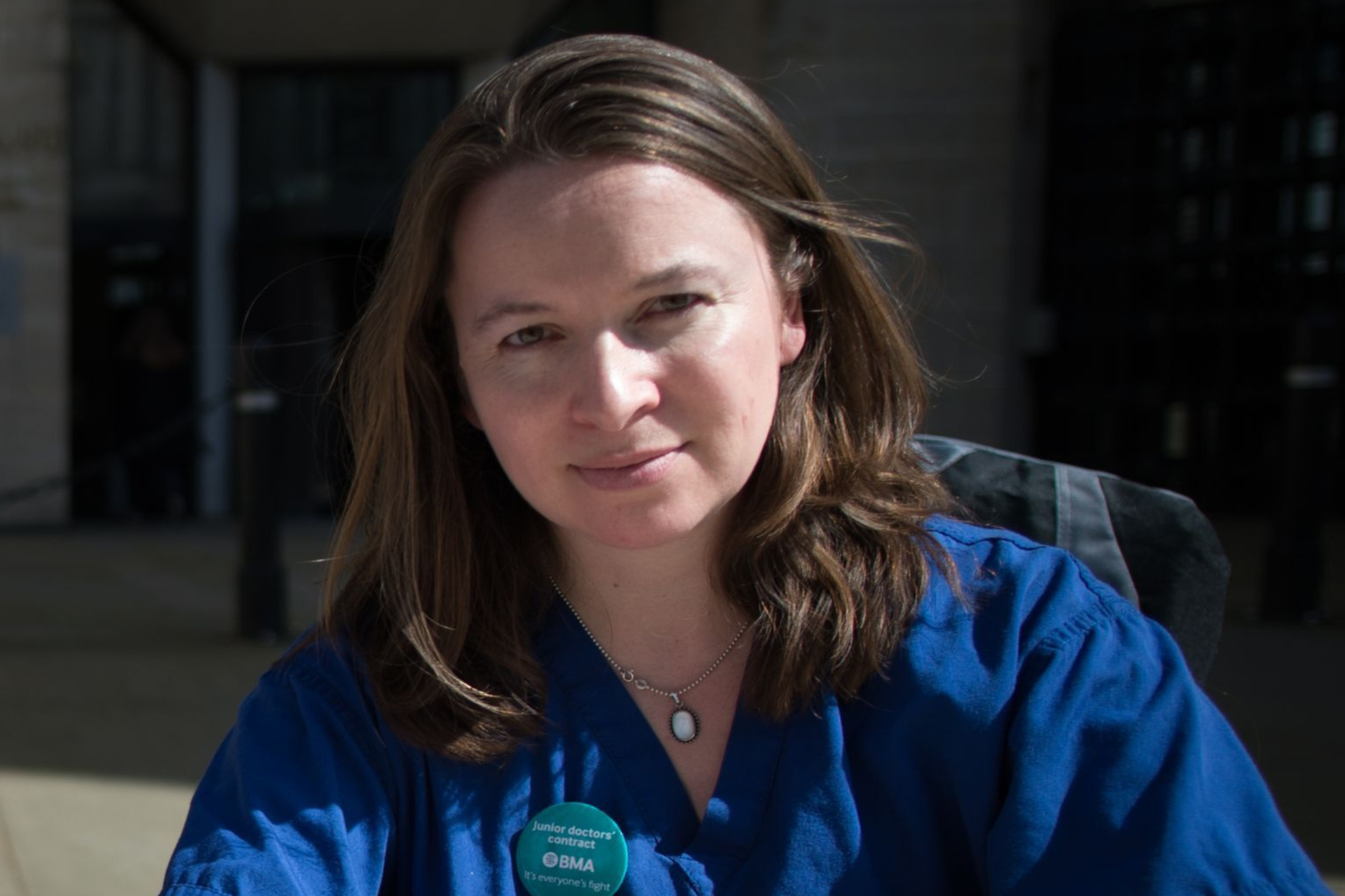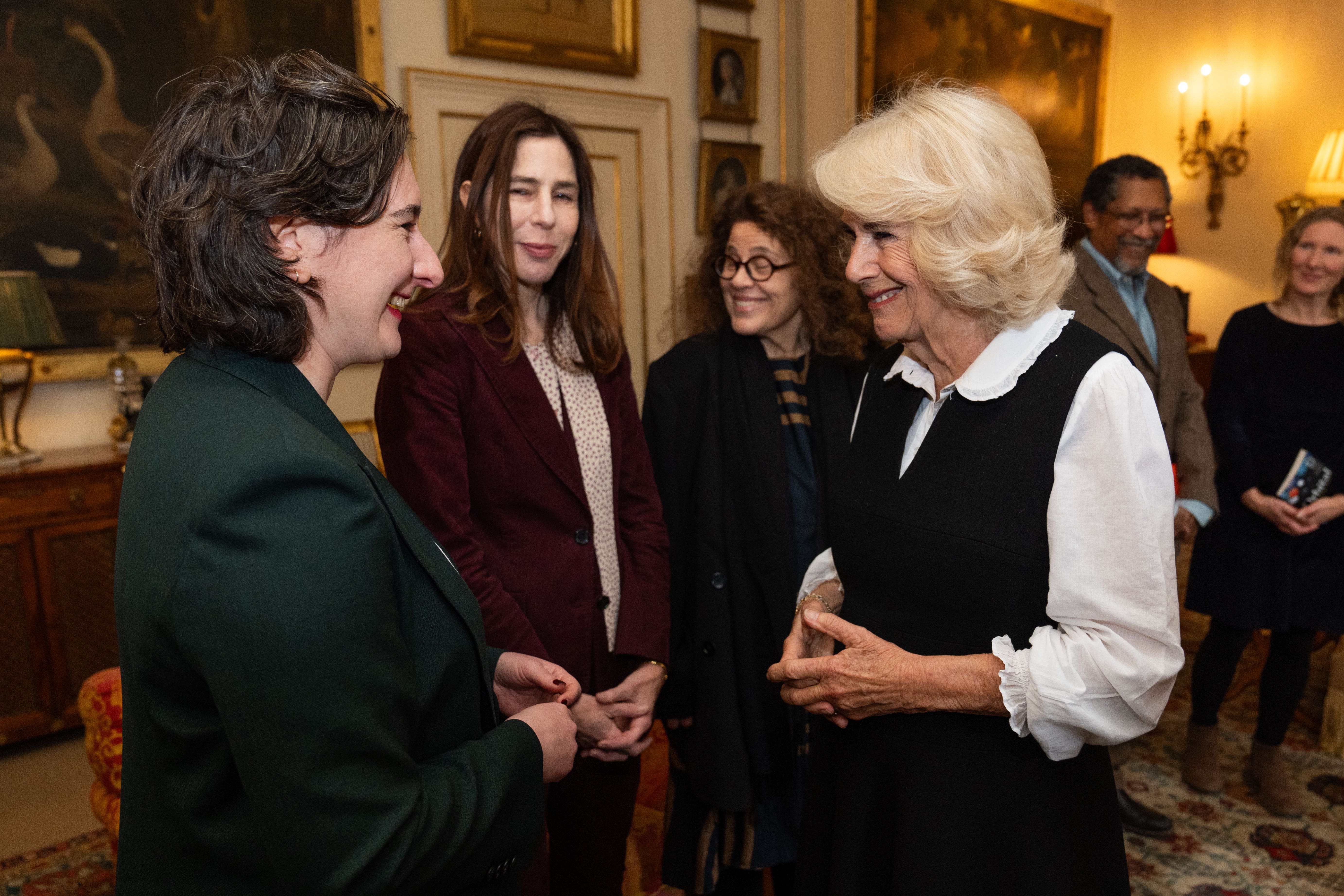Women’s Prize winner and NHS doctor Rachel Clarke has issued a plea to health secretary Wes Streeting as resident doctors face unemployment due to a lack of training posts.
This summer, some 20,000 doctors are expected to miss out on specialty training places, while other trained doctors are at risk of unemployment, according to the British Medical Association (BMA).
Although the NHS is in desperate need of trained doctors, last year 4.7 applications were made for every specialty post advertised, with the number set to rise again this year.
Without specialty training, resident doctors’ careers stagnate as they are unable to follow the traditional path to becoming consultants, often leaving them unemployed or seeking an alternate means of income.
Speaking to The Independent after winning the Women’s Prize for Non-Fiction for her fourth book The Story of a Heart, Clarke said: “It’s almost unbelievable. In the last few years, we’ve gone from a situation where we were desperately short of doctors into one now where young doctors are finding themselves unemployed.”
Clarke, who works in palliative care, continued: “The number of training posts for doctors has been so reduced compared to the number of doctors who are coming through the system. That seems completely ludicrous.
“The NHS needs every doctor it can get. But we are inhabiting a world now where doctors are unemployed.”
.png)
Clarke recalled hearing stories of doctors who have signed up for shifts on the ride-hailing app Uber or sought out other zero-hours contract work because they’re unable to secure an NHS post.
“It’s madness,” she said. “If I had one message for the health secretary, it would be, ‘Please, Mr Streeting, do not be the health secretary in post while doctors are unemployed and signing on with Uber shifts.’
“You do not want to be that person. Any health secretary in that position is doing something terribly wrong.”
Her comments follow after a survey conducted in March by the Medical Defence Union (MDU) found that more than one third (35 per cent) of working doctors in the NHS reported their ability to treat patients is impaired because they are so tired due to staff shortages, long hours, and a soaring demand in care.
“When I was a junior doctor, I nearly killed myself after a very long bank holiday weekend on call when I was driving home and I, for a moment, fell asleep at the wheel,” said Clarke.
“How I walked out of it unscathed, I will never know because the car was a complete write-off. That was a direct consequence of the hours I was working.”

This week, Mr Streeting announced a 10-year NHS plan for England, which is set to be published in July. Radical reforms could see hospitals taking over GP surgeries and family doctors running hospitals.
“We now have a government and a health secretary in Wes Streeting who has absolutely promised the public that he is going to do what is needed to resurrect our NHS – and I want to believe him,” said Clarke.
“But that is going to take resources as well as reform. We’re working in hospitals that are literally falling apart. Where roofs are caving in. Some hospitals have raw sewage running through their wards.
“The investment needed is immense and I desperately hope that under this government we have a commitment to the NHS that is genuine.”

Clarke was awarded the Women’s Prize for Non-Fiction at a ceremony held in Bedford Square Gardens, London, on Thursday 12 June.
The award-winning book, The Story of a Heart, is a moving history of heart transplants over a century, bringing in the stories of countless immunologists, nurses and scientists. “It’s a reminder that people by and large, are good and decent and wonderful, and that’s a story that needs telling,” Clarke told The Independent.
Also feted at the literary event was Dutch author Yael van der Wouden, who won the Women’s Prize for Fiction with her novel The Safekeep about a girl who lives in her late parents’ house in the Netherlands after the end of the Second World War.

The book, which is the 37-year-old’s debut novel, was also nominated for the Booker Prize in 2024.
Van der Wouden, born in Tel Aviv, Israel, to an Israeli mother and Dutch father, lives in the Netherlands where she lectures in creative writing and comparative literature.
Speaking about the themes of her novel, including displacement and generational trauma, van der Wouden said: “Part of my history as somebody born in Israel is always going to be implicated by the dispossession and displacement of Palestinians and my existence.
“The Netherlands is always going to be, shaped and defined by the displacement of disposition of Jewish people there. I mean, those two stories have made me who I am in a way.”
The Safekeep beat Good Girl by Aria Aber, All Fours by Miranda July, The Persians by Sanam Mahloudji, Tell Me Everything by Elizabeth Strout, and Fundamentally by Nussaibah Younis.

“It's absolutely bizarre,” van der Wouden said of triumphing in the competitive category. Asked whether she feels intimidated to write a second novel following the success of her debut, the author replied: “Absolutely. 100 per cent, yes. I’m terrified.”
The Women’s Prize for Fiction, which is now in its 30th year, was set up in 1995 in the wake of an all-male Booker prize shortlist in 1991. It has previously been won by authors including Zadie Smith, Ali Smith and Chimamanda Ngozi Adichie. Last year’s winner was Brotherless Night by VV Ganeshananthan.
The inaugural Non-Fiction prize was awarded to Naomi Klein last year for her political memoir Doppelganger, after research commissioned by the Women’s Prize Trust found that female non-fiction writers are less likely to win prizes or be reviewed than male authors.
Rachel Clarke and Yael van der Wouden win Women’s Prize for Non-fiction and Fiction
Actress Kym Marsh’s vital message after Dad’s battle with prostate cancer
Frederick Forsyth, The Day of the Jackal author, dies aged 86
Stephen King puts the Trump and Musk feud into perspective with scathing takedown
Writer Bernardine Evaristo receives lifetime accolade
Author Philippe Sands told it is ‘unacceptable’ to read Tolstoy amid Ukraine war







